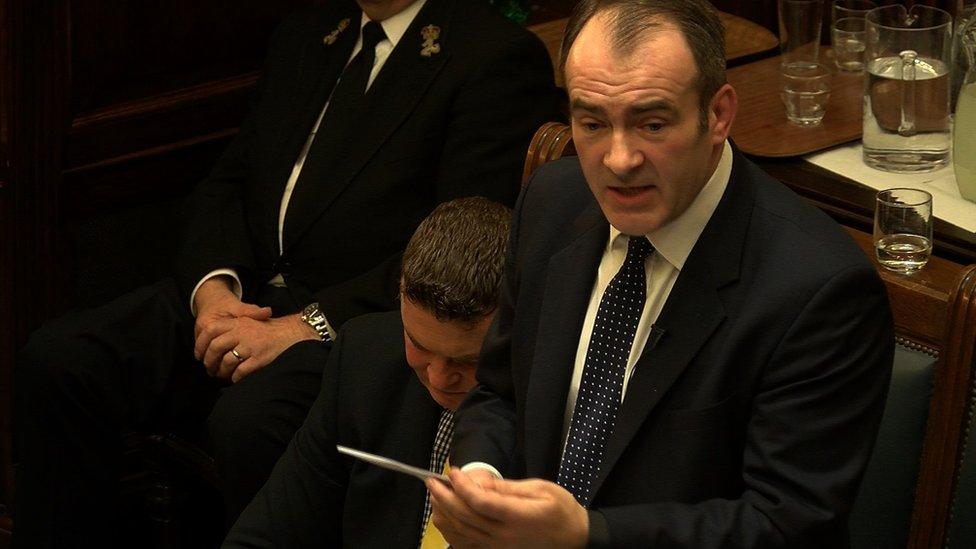Isle of Man 2% personal income tax rise ringfenced for health
- Published
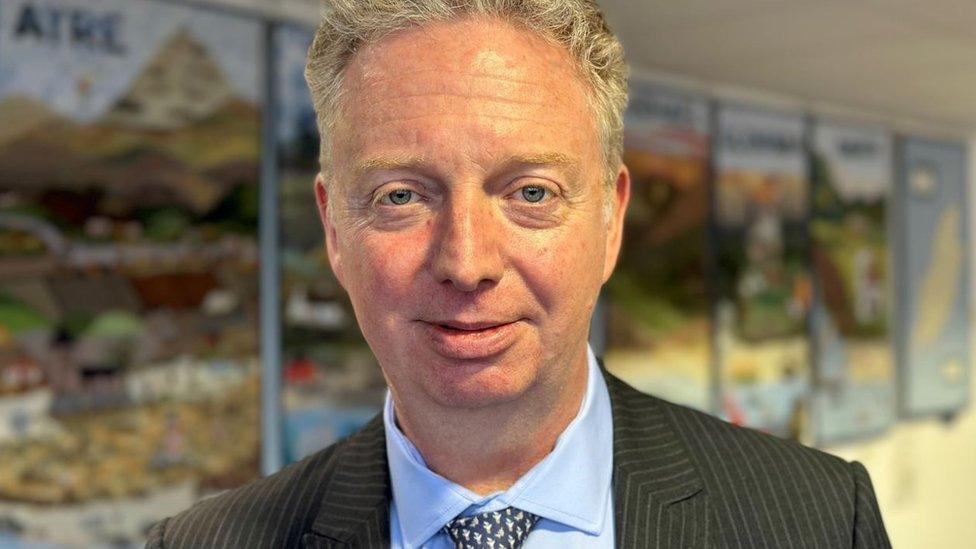
Alex Allinson said the budget had a focus on continuing to provide key services
A 2% rise in the higher rate of personal income tax to generate a £20m boost in health spending has been revealed in the Isle of Man budget.
Treasury Minister Alex Allinson has outlined his financial plan to Tynwald, allocating a total of £1.3bn in government spending in 2024-25.
That equates to £16,343 per person, a rise of £1,100 from the current year.
The tax rise from 20% to 22%, applied to earnings above £21,000, is the first of its kind on the island since 2010.
Dr Allinson said income generated by the increase would be "ring-fenced" for improvements to frontline health services.
While the personal allowance threshold is to remain at £14,500, anyone earning £129,000 or more will not receive personal allowance relief.
Dr Allinson said although tax rises would "irk" some people, it was an "honest and realistic way" to "grow and develop" national health services for the island.
National Insurance (NI) contributions are set to undergo annual increases to thresholds and limits to ensure they keep pace with wage inflation and that the overall level of contributions being paid into the NI Fund is maintained, he said.
The changes will see those on minimum wage save £85.80 a year, while those earning £45,786 or more annually will see their contributions increase up to a maximum of £299.
Combined, the tax and NI changes will see those with an income of £35,000 pay an extra £194, while those on £348,000 will find themselves £760 less well off.
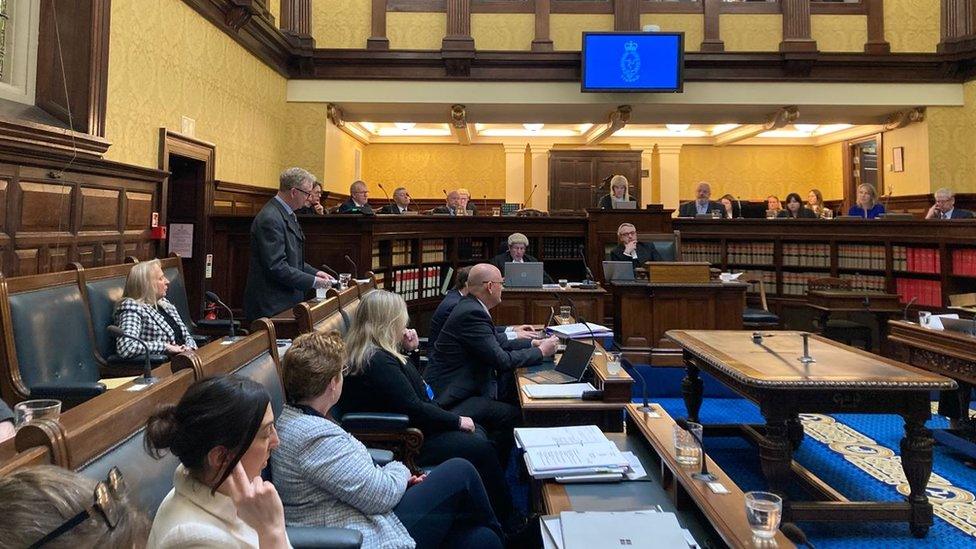
The budget for 2024-25 was delivered in the Tynwald chamber
However, families and those on pensions are set to benefit from some of the measures outlined in the budget.
As previously announced, a continuation of the triple-lock arrangement for retirement pensions will see the basic state pension and Manx state pension to rise by 8.5%.
Maternity, paternity and adoption allowance is set to be uplifted by 15%, with a further boost to those with two or more children as the child benefit rate is equalised for them all.
Other benefits, including employed persons allowance and income support, are to increase by between 5.7% and 6.7% in line with either the Isle of Man or UK's rate of inflation.
Dr Allinson said he was "determined" to make sure people saw the benefits of "extra investment in terms of key services" over the next year.
"The days where the Isle of Man was sold as a low tax jurisdiction are sadly gone," he said.
Other tax changes include a rise in the corporate rate from 10% to 15% for banking business and large retailers, a move that partly marries with a commitment previously made to increase tax for large multinationals from 2025.
A new 20% rate of tax on income from gas and oil extraction on the island or in Manx territorial waters is also set to be introduced on top of any royalties the government would receive for such activities.
New healthcare levy
While the budget outlines spending over the next year, it also sets out a rolling financial plan for the next five years.
The Department of Health and Social Care is to receive £301m in net funding, along with an annual allocation from NI contributions, this year of £52.7m.
This is coupled with a long-term financial plan drawn up for future years in line with findings from the Sir Jonathan Michael report to allow for the continued health care transformation project.
Dr Allinson said it would address the "gap in healthcare funding" in a department with a long history of overspending.
However he said the latest tax changes would likely be temporary as a new tax strategy, set to include a health care levy to replace the increase, would be debated at the March Tynwald sitting.
The Department of Education, Sport and Culture is also set to benefit from a boost, with an additional £18m in funding.
While work to extend the pre-school credit scheme to children aged three to four in a "phased approach" was also being progressed, £3m has been allocated to rolling out a Childcare Strategy to improve children's services across the island.
The government has also committed to spend £429m on capital projects over the next five years, with £101m earmarked for the 2024-25 financial year.
Those works include:
£6.1m strategic highways refurbishment
£5m for infrastructure climate change adaption projects
£1.5m for works at the Isle of Man airport
£600,000 in additional funds for Ramsey Shipyard improvements
But the budget continues to be reliant on government reserves for its revenue budget, with £98m needed to balance the books in the forthcoming year.
Dr Allinson said that was a reliance that would be brought to an end as part of the medium term financial plan as the amount in reserves, which currently sit at £1.76bn, must be "preserved".
"This budget puts us on a much more sustainable path for government income and how we can spend that in the right areas," he said.

Why not follow BBC Isle of Man on Facebook, external and X, external? You can also send story ideas to IsleofMan@bbc.co.uk
- Published21 February 2023
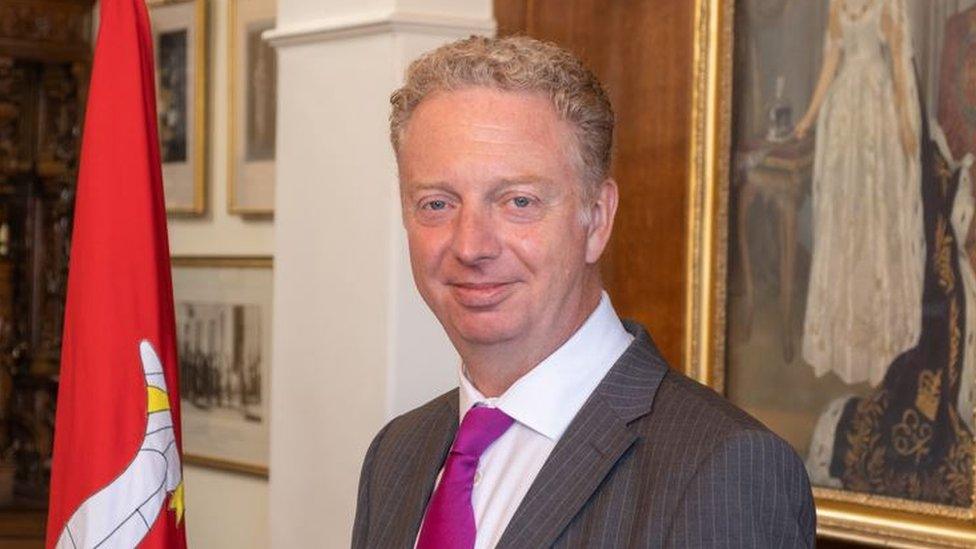
- Published15 February 2022
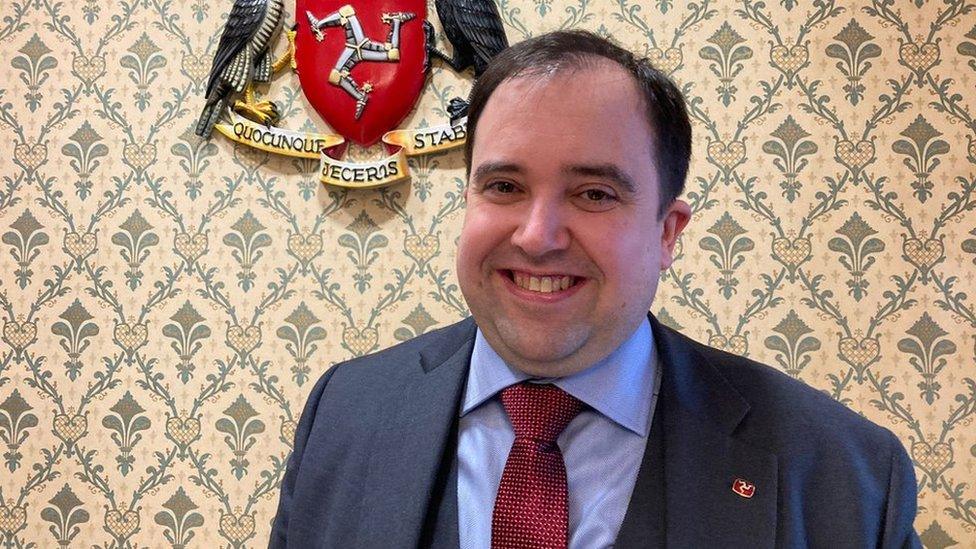
- Published16 February 2021
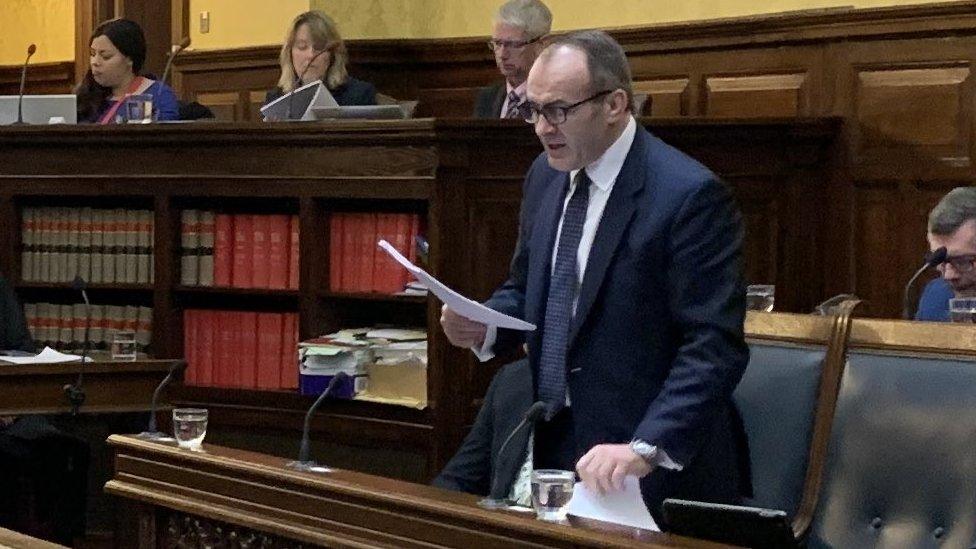
- Published18 February 2020
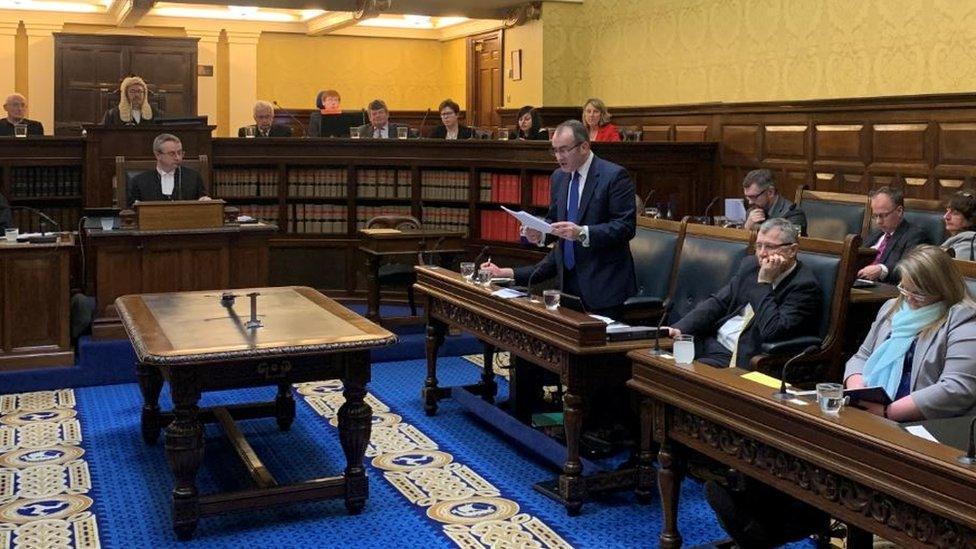
- Published19 February 2019
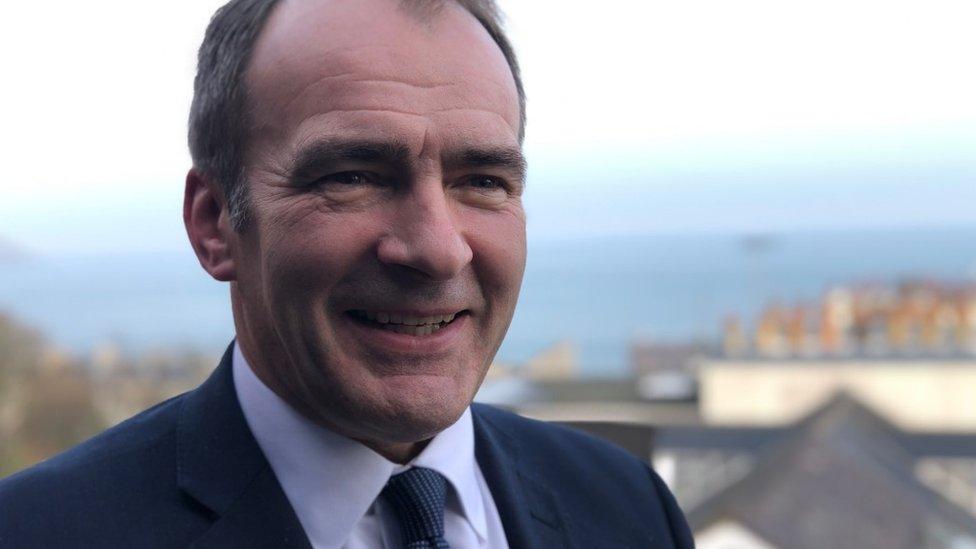
- Published20 February 2018
